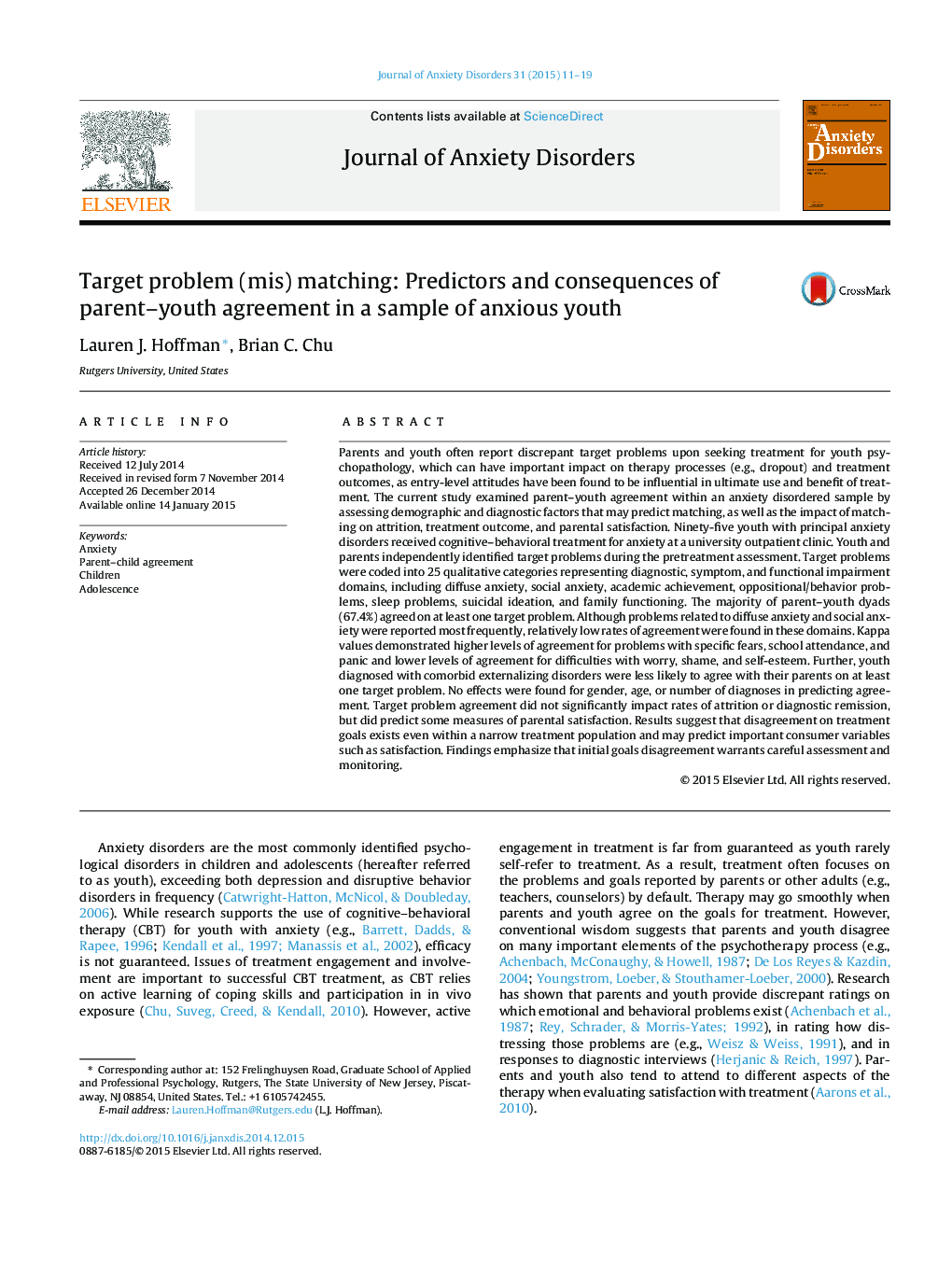| کد مقاله | کد نشریه | سال انتشار | مقاله انگلیسی | نسخه تمام متن |
|---|---|---|---|---|
| 909252 | 1473047 | 2015 | 9 صفحه PDF | دانلود رایگان |
• The majority of parent–youth dyads agreed on at least one treatment goal.
• Lower agreement was found for goals related to worry and self-esteem.
• Higher agreement was found for concrete goals (specific fears, school attendance).
• Youth with comorbid externalizing disorders were less likely to agree with parents.
• Agreement on goals predicted parent satisfaction with therapy.
Parents and youth often report discrepant target problems upon seeking treatment for youth psychopathology, which can have important impact on therapy processes (e.g., dropout) and treatment outcomes, as entry-level attitudes have been found to be influential in ultimate use and benefit of treatment. The current study examined parent–youth agreement within an anxiety disordered sample by assessing demographic and diagnostic factors that may predict matching, as well as the impact of matching on attrition, treatment outcome, and parental satisfaction. Ninety-five youth with principal anxiety disorders received cognitive–behavioral treatment for anxiety at a university outpatient clinic. Youth and parents independently identified target problems during the pretreatment assessment. Target problems were coded into 25 qualitative categories representing diagnostic, symptom, and functional impairment domains, including diffuse anxiety, social anxiety, academic achievement, oppositional/behavior problems, sleep problems, suicidal ideation, and family functioning. The majority of parent–youth dyads (67.4%) agreed on at least one target problem. Although problems related to diffuse anxiety and social anxiety were reported most frequently, relatively low rates of agreement were found in these domains. Kappa values demonstrated higher levels of agreement for problems with specific fears, school attendance, and panic and lower levels of agreement for difficulties with worry, shame, and self-esteem. Further, youth diagnosed with comorbid externalizing disorders were less likely to agree with their parents on at least one target problem. No effects were found for gender, age, or number of diagnoses in predicting agreement. Target problem agreement did not significantly impact rates of attrition or diagnostic remission, but did predict some measures of parental satisfaction. Results suggest that disagreement on treatment goals exists even within a narrow treatment population and may predict important consumer variables such as satisfaction. Findings emphasize that initial goals disagreement warrants careful assessment and monitoring.
Journal: Journal of Anxiety Disorders - Volume 31, April 2015, Pages 11–19
